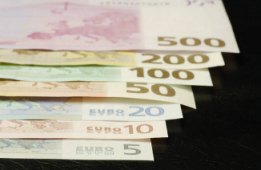ECB Continues But Tapers QE
Published / Last Updated on 26/10/2017

ECB Continues But Tapers QE.
The European Central Bank (ECB) has confirmed that it will continue its programme of quantitative easing (QE) i.e. buying back European Sovereign Debt.
What is QE?
Governments borrow money (a public sector borrowing) they issue government bonds (in the UK they are called Gilts – Gilt Edged Securities). These bonds have a specific term and pay interest, known as a coupon. At the end of the term the bond is cashed out i.e. repay the original capital borrowed. Bonds are usually bought by pension, investment funds and banks.
QE involves governments buying back government debt to release money into the economy.
EU QE
Originally the ECB did not get involved in QE as it would be the European Central Bank buying Italy, France, Spain, Greece etc government debt. Certainly, the Germans were against using central European funds to underpin individual governments debt. This is technically just printing money and pumping it into an economy to try and stimulate the economy.
The ECB president, Mario Draghi, confirmed that the ECB will continue with its €60bn a month but will reduce to €30bn per month in January and will continue until the at least September 2018.
Impact
Countries like Italy, Spain and Greece could be in trouble. Italy has huge public sector debt and if there is not enough money out there to buy up its debt, you could see Italy get into trouble and have to pay even higher rates on new debt borrowing to be able pay back older debt borrowing coming to maturity but then it could even trigger a bond market crash, one of the drivers behind the 1987 Black Monday stock market crash.